Just over four years ago I traveled all over the country to interview for internship and ophthalmology residency positions. In what has since become one of the most popular posts, I subsequently categorized all of my residency application and travel-related expenses, reporting that I spent just under $10,000 to apply and interview at 13 ophthalmology residency and 11 internship programs. I recently completed what I sure hope will be the final match of my medical training, as I interviewed and matched into a surgical retina fellowship program. Several things have changed in the travel industry in the past four years since I interviewed for residency, including Uber, Lyft, and Airbnb, and as I traveled, I wondered how my previously reported residency travel-costs may compare in light of these changes. With future residency and fellowship applicants in mind, here is an updated report of my 2017 fellowship application and travel costs.
Before we get to the numbers, here are a few assumptions and points to consider as you look at my costs.
- I applied to 37 surgical retina fellowship programs. The first eight programs are included in the $299 application fee, with each additional program costing $35.
- I interviewed at 15 programs, one of which was my home program at the University of Iowa, which of course did not require travel.
- Where possible, I tried to complete multiple interviews in the same trip, though this was only possible for a handful of interviews. I drove to four interviews (Iowa, Iowa to Wisconsin, Iowa to Chicago, Birmingham to Nashville).
- I completed 33 individual flight segments, for a total of 30,568 miles, equivalent to flying around the Earth 1.23 times!
Okay, now for the figures and data.
Below is a map of the cities in which I interviewed. Keep in mind that home base was Iowa City, Iowa.
Below is a pie chart representing my total fellowship application and interview costs. I track my finances using mint.com, so this data should be a very good representation of my application and interview costs.
And here is a pie chart representing the breakdown of interview transportation costs, which represented 62% of my total application and interview costs.
Now, just for fun, take a look at the side by side comparisons, between the expenses for the 2012 and 2016 interviews.
A few key takeaways:
- Applying to internship, residency, and fellowship is expensive. Plan ahead and start saving.
- Uber and Lyft have absolutely decreased the cost of ground travel during interviews. As you can see, the overall cost for road travel (rental cars, gas, parking, and Taxis/Uber/Lyft) was significantly decreased in 2016 compared to 2012.
- Hotel and lodging expenses remained about the same between 2012 and 2016. I ended up staying in private Airbnb rooms for just 3/14 interviews, largely because in many cities, the reasonably cheapest hotel was still less expensive than a comparable Airbnb. I love Airbnb, but sometimes any cost savings is just not worth the extra hassle of small-talking with the host, wondering if they have an ironing board, sharing a bathroom, etc. etc.
- A 2006 article in Urology suggested that applicants spent a median of $330 per interview on travel expenses. If you look at my total travel costs excluding applications (i.e. travel + food + hotel) and divide that sum ($8,067 in 2012 and $5,966 in 2016) by the number of interviews to which I traveled (22 in 2012, 14 in 2016 not including my home program), my per-interview travel cost was $367 in 2012 and $426 in 2016. This was likely due to the greater difficulty in interviewing at multiple programs during the same road trip due to scheduling challenges, fewer road trips, and the greater airfare expense associated with living in a location with a smaller, regional airport. I recommend using $390 per interview in your financial forecast, which is an average of my 2012 and 2016 expenses (though remember to include on top of this the cost of applications, which can vary depending on how many programs to which you need to apply in order to be invited to sufficient interviews to match).
Do you agree with this overall cost breakdown? How does it compare to your residency or fellowship application and travel costs? What travel tips have you learned along the way to save money?

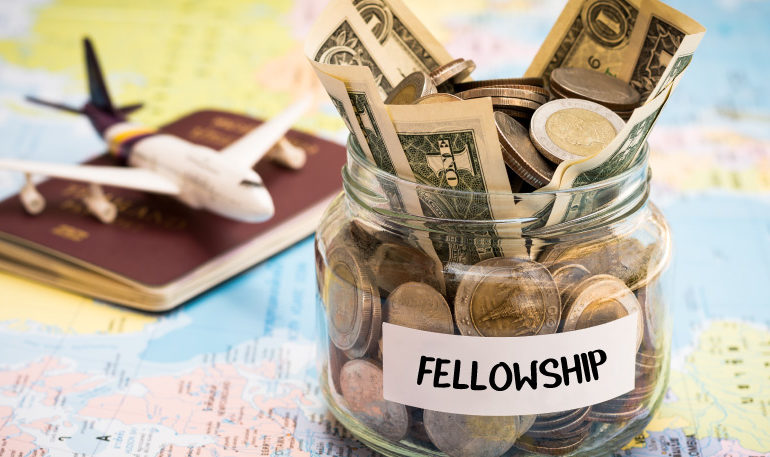
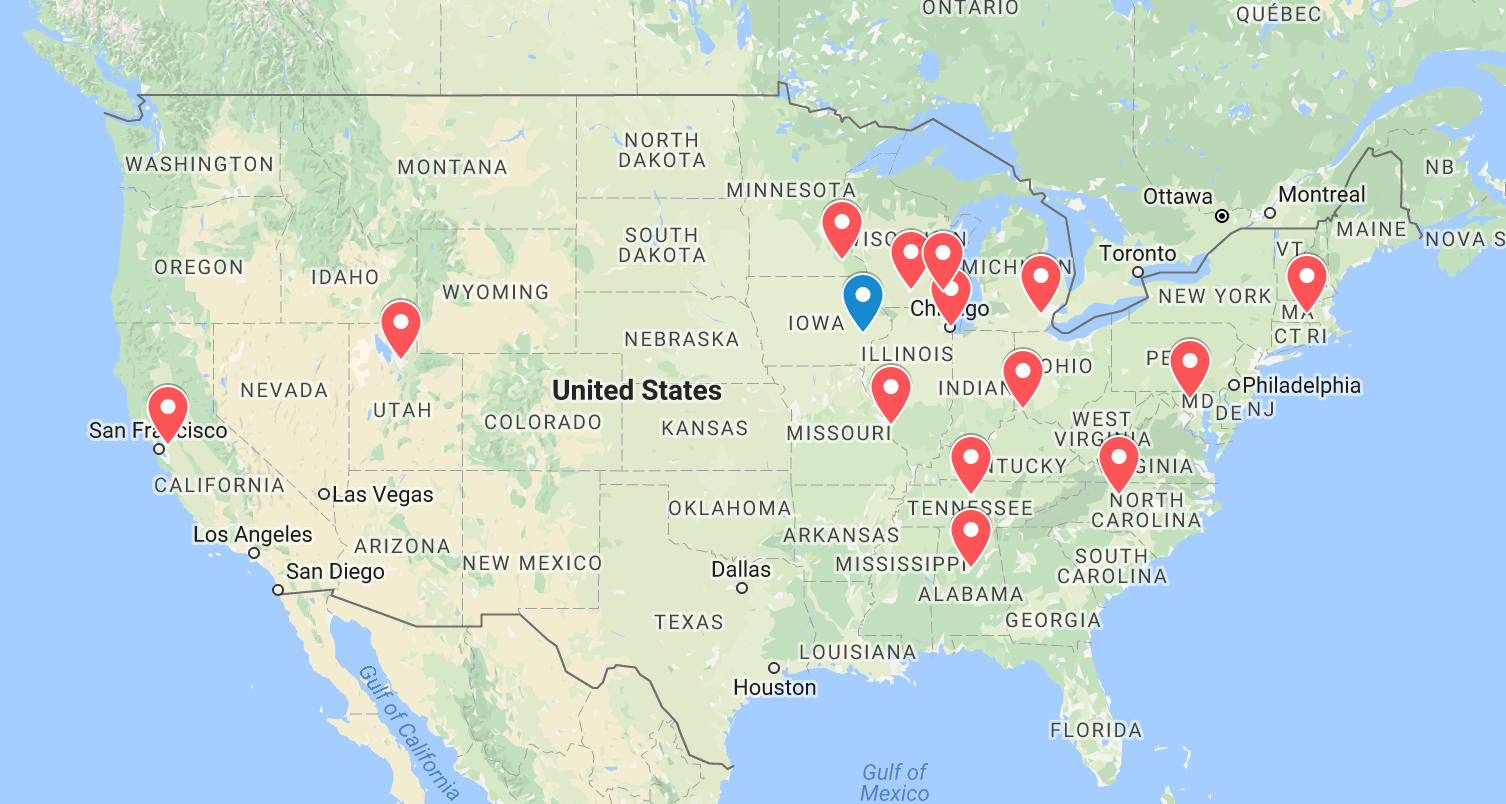
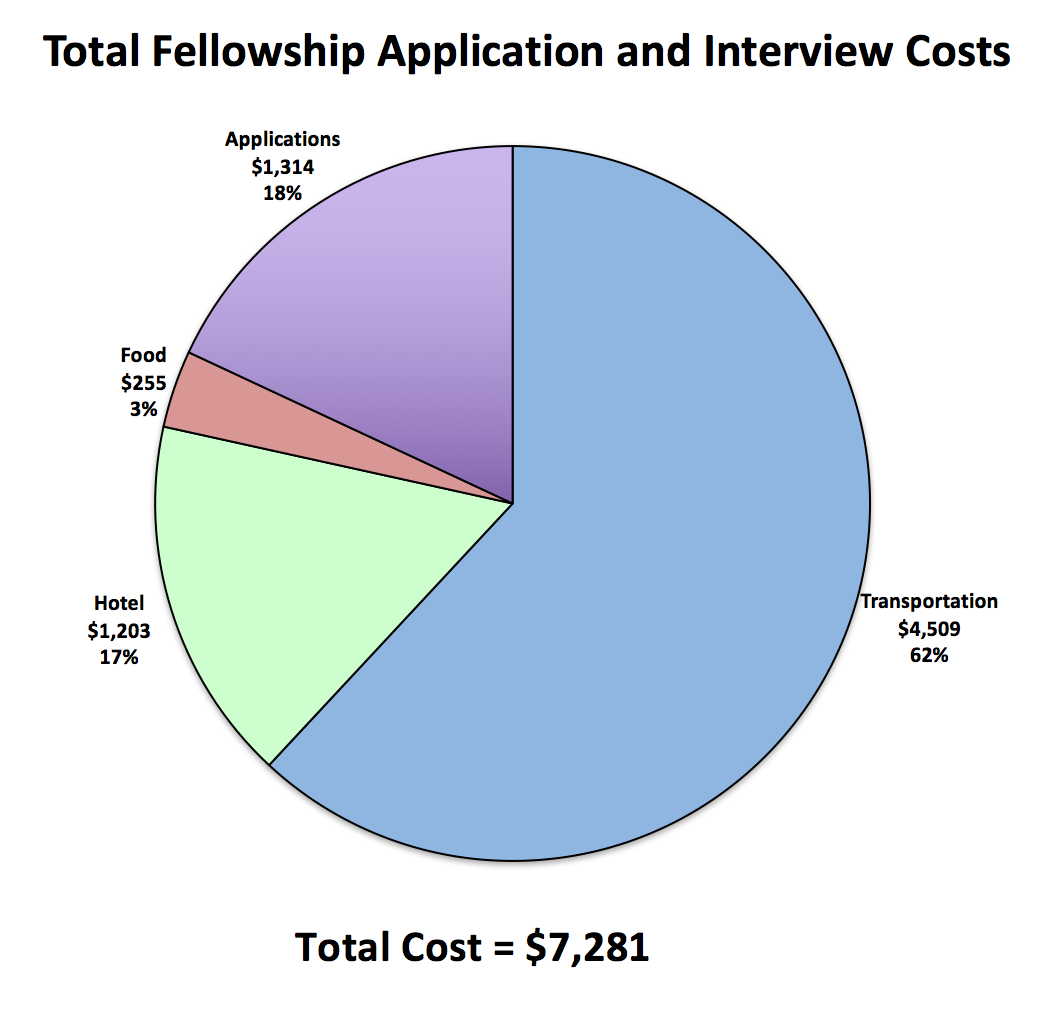
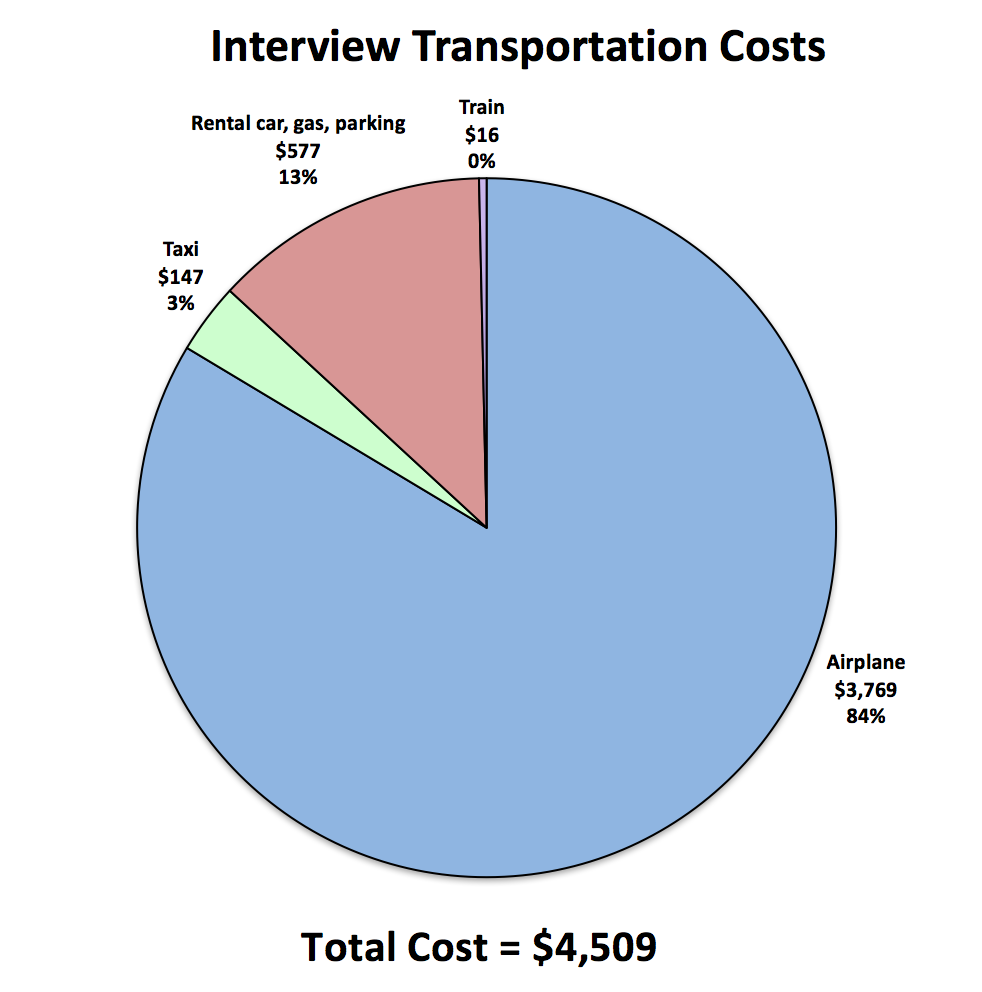
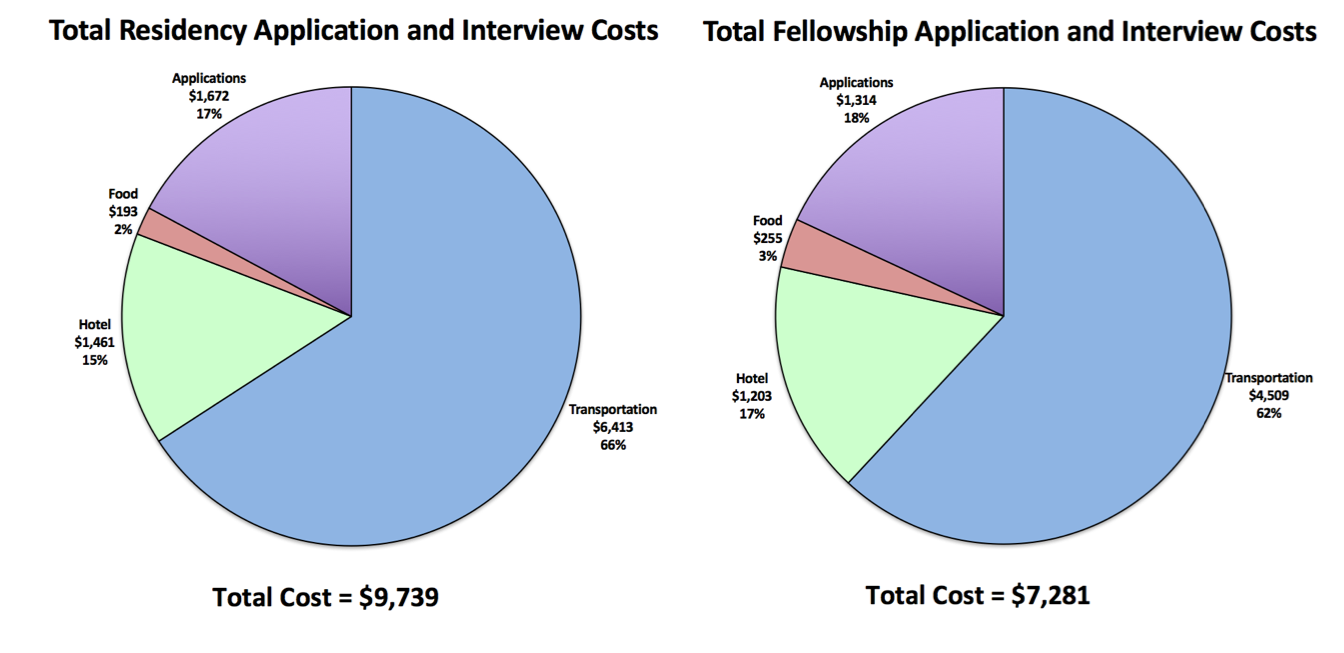
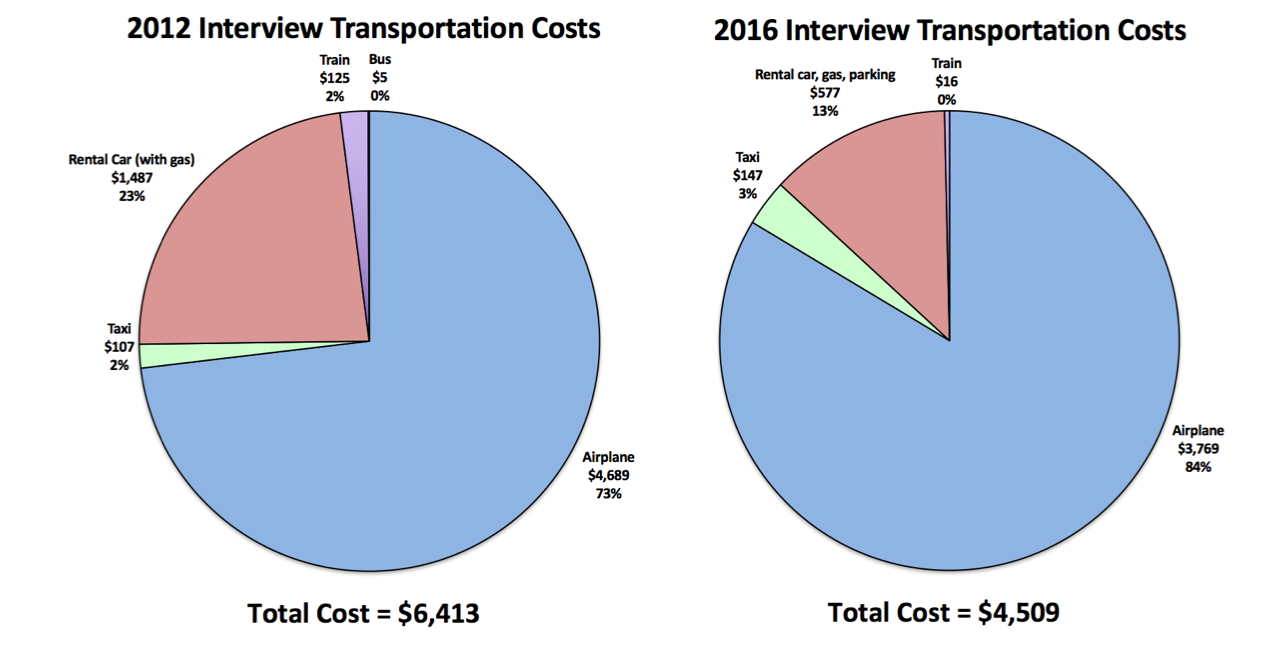
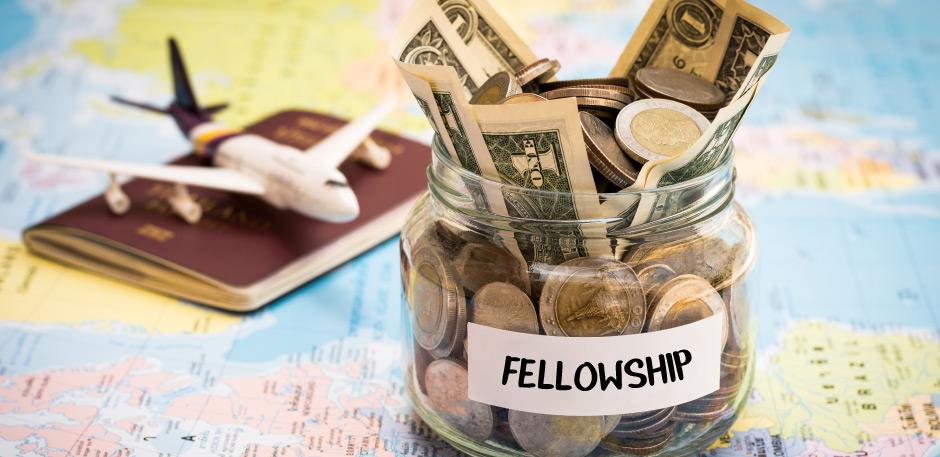





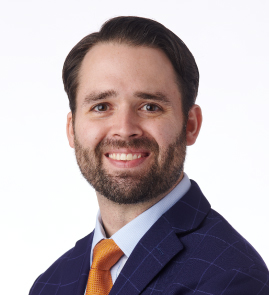
Steve,
Glad to hear that your fellowship interviews went well and you have succeeded thus far in your career. Retina is awesome! I’m a third year DO student considering applying for the MD Ophtho match. I wanted to know your opinion on taking a research year between years 3 and 4 since I lack research. Thanks